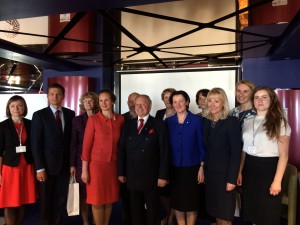Research of Yvette Baggen et al showed that the field of cognitive research contributes to the field of entrepreneurship research; it provides a deeper understanding of the initial steps of the entrepreneurial process. More specifically, it is argued that those who excel in opportunity identification, share core characteristics with high-level complex problem solvers.
The results will be published in Baggen, Y., Mainert, J., Lans, T., Biemans, H. J. A., Greiff, S., & Mulder, M. (in press). Linking complex problem solving to opportunity identification competence within the context of entrepreneurship. International Journal of Lifelong Education. Doi: 10.1080/02601370.2015.1060029. (special issue: Problem solving – facilitating the utilization of a concept towards lifelong education).

